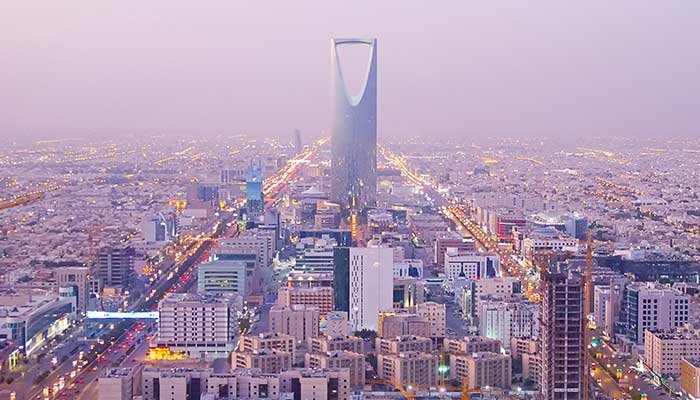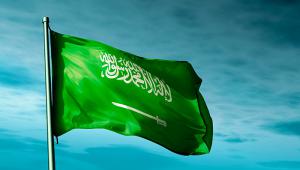web_riyadh_istock-185927876.jpg

Riyadh, the capital of Saudi Arabia.
Two years of low oil prices have hit the kingdom and its public finances hard. The collapse in prices saw the government, used to lavish spending, run up a deficit close to $98bn in 2015.
Last year, the world’s major oil producers reached a deal to cut production and ease oversupply in order to boost prices. But the IMF said this will mean Saudi’s oil GDP will still shrink this year, meaning lower growth overall.
The IMF announced the revised forecast, from a predicted 2% economic growth to 0.4%, in its World Economic Outlook on Monday. At a press conference yesterday, the fund delved deeper into the rationale behind its decision.
As well as predicting lower growth in the oil sector, which accounts for around 45% of GDP, Tim Callen, assistant director and mission chief for Saudi Arabia at the IMF, said the fund had also slightly downgraded growth in the non-oil sector.
Last year, the Kingdom embarked on an ambitious reform plan to diversify its economy by growing the non-oil sector in order to end its “addiction” to oil.
However, Callen explained: “Clearly oil and government spending had been a big driver of growth in the non-oil economy during the period of rising oil prices.
“Without that impetus to growth, the non-oil sector is going to need to find other sources.”
The country has also been rolling back its substantial public sector as its budget has shrunk. Callen said the transition would require education and training programmes to be introduced to help citizens find alternative employment in the private sector, or as entrepreneurs.
However, he added that the fund does expect an extensive programme of cuts and tax increases to ease somewhat this year, allowing a modest recovery in non-oil growth. The country can also anticipate a boost in oil revenues, which account for over 70% of public funds.
Still, the Kingdom has hired consultancy firm PwC to advise on what else can be cut to help achieve its $53bn deficit projections for 2017.
Last week, it was reported that the firm had reviewed $69bn worth of government contracts and suggested around $20bn worth of planned projects be cancelled to shore up finances.
Callen said the IMF welcomed the fiscal plan announced last December and expects the budget deficit to fall to less than 10% of GDP this year, down from around 16% in 2015.
The Kingdom’s debut $17.5bn bond issue in October was massively oversubscribed, and reportedly the government is planning to tap into the international debt markets again to finance its remaining deficit, which the government forecasts at 7.7% of GDP for 2017.
According to its borrowing plans, Riyadh seeks to find between $10bn and $15bn from bond issues.
But speaking at the World Economic Forum in Davos yesterday, Saudi Arabia’s finance minister Mohammed Al-Jadaan disputed the IMF growth forecast.
He told Bloomberg Riyadh expects “significantly higher” growth than the fund’s estimate, and suggested it would be “north of 1%”.
He said: “We have various information that they may not have, so that could explain the difference.”
He was referring to economic stimulus measures the government is planning to introduce to boost the non-oil sector. These include, for example, $30-50bn worth of investments in renewable energy.













